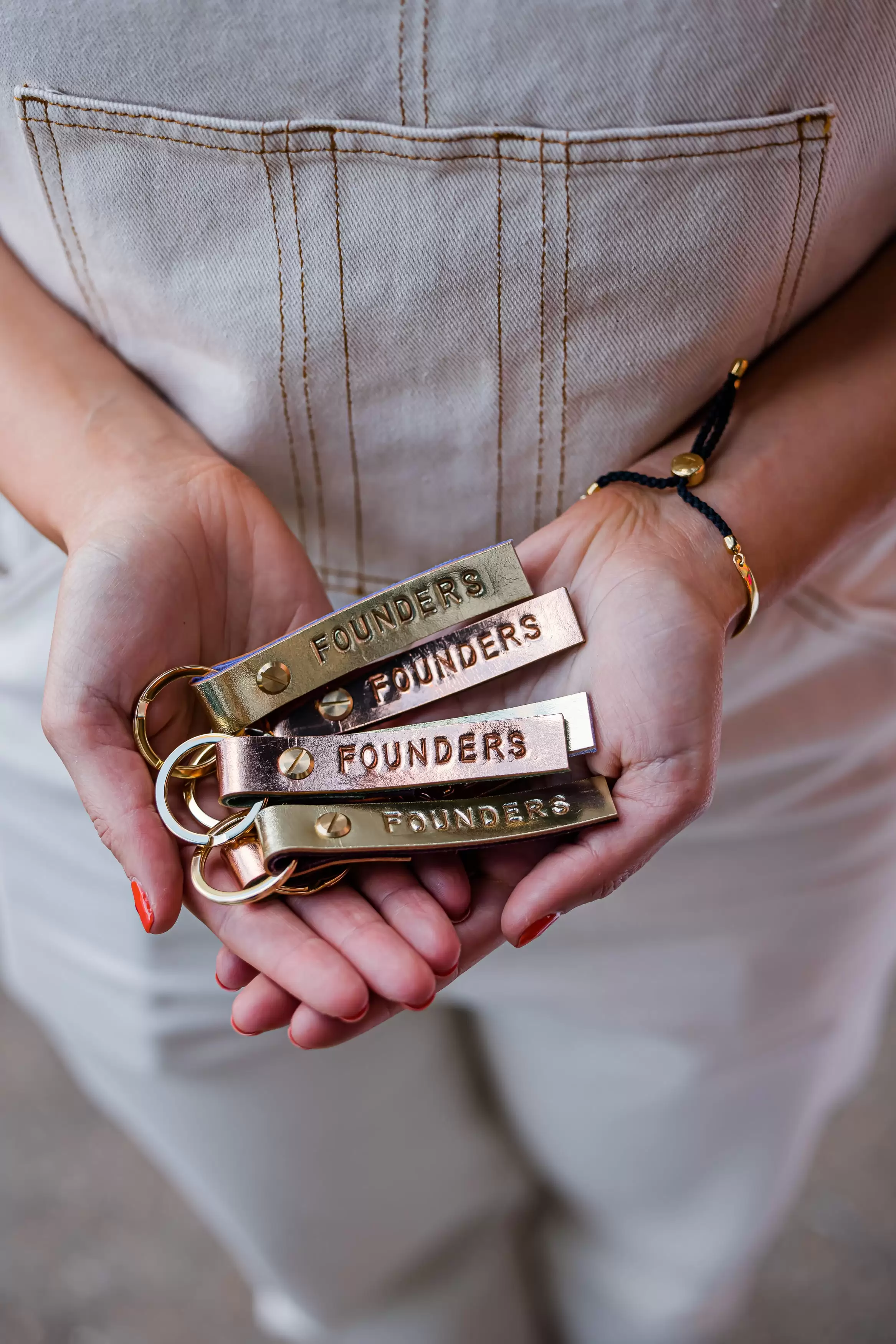NEXT DROP 6TH MARCH 7AM. JOIN CLUB HOLLY & CO FOR ACCESS

How to choose a co-founder
starting out
By Holly Tucker
2ND MAY 2023
What makes a good co-founder? When you start a business, choosing a co-founder is one of the most crucial decisions you'll make. They'll be your partner, sounding board and support system through thick and thin. Read on to find out what you need to consider before walking down the 'business aisle'.

How to find the perfect co-founder? Learn what to look for in a business partner
Having built all my businesses with co-founders, I’m very aware of the immense power that comes when you build with others. Someone to be there with you in the early hours of the morning finishing an important pitch, the yin to your yang when it comes to the presentation itself, and a hug at the end of it all, which means the world. Because they are the only people who can truly understand what you’re going through. So where do you start? When you’re on the search for that perfect person you’ll likely begin with your friends — but does it work in reality (and it’s worth reading our article on what it’s really like to hire your friends and family)? Here are some things I learned that might help you make the right match.
- Know it won’t be exactly how you imagined. We often act differently in a working environment so this will stretch, and ultimately test, a different muscle in your friendship so be prepared to see a different side to each other.
- Finding complementary skills between co-founders is a good idea. Be open and honest about your strengths and weaknesses — two heads are only better than one if you’re embracing your superpowers! The best business partnerships are often about finding a yin to your yang.
- Navigate your exciting new dynamics together carefully. As long as you’re walking into this new venture with your eyes wide open to the realities, then such partnerships can be pure dynamite. In fact, understanding that this friendship is now a business relationship within the office walls is in itself a really good start.
Understanding the role of co-founders: how to align your vision and values
- Whoever you’d most love to join you on the journey, fundamentally the success of any business is down to a clarity of vision and the shared values of those working together. It’s imperative you’re both utterly aligned, and that all the creases are ironed out of the two visions coming together before day one. It’s hard enough running a business and bringing your vision to life, without you and your co-founder navigating whether to go left or right.
Having built all my businesses with co-founders, I’m very aware of the immense power that comes when you build with others. Someone to be there with you in the early hours of the morning finishing an important pitch… and a hug at the end of it all, which means the world.
Here are some considerations:
- Ask the hard questions. When Sophie Cornish MBE and I founded notonthehighstreet together, we asked ourselves how much we wanted to earn, what are our worst traits and to describe how we deal with conflict — I’m sure our husbands would have loved to get hold of this information!
- Address the practicalities. Are you on the same page when it comes to the practicalities of business i.e. working hours, holidays, ways to deal with sickness, and even pay? It’s vital to take all these considerations on board and be open up front.
- Nurture your relationship. Choosing a business partner is like picking a husband or wife. It’s someone you would walk down the ‘business aisle’ with and just like a marriage, the real work begins after the partnership forms. So commit to nurturing the bond for long-term success.
Creating a great co-founder relationship; consider external guidance to grow
Sometimes, with no fault of the founders, relationships can very easily become strained. Here are some things I wish I had known when I started:
- A co-founder relationship will benefit from counselling or coaching. Personally, I think founders could do with an element of external intervention to work through issues that you both might be experiencing. You’re dealing with intense challenges where no one knows the answer, so it’s really healthy to enlist someone’s help to meditate to find a solution, be it in the relationship or the business itself.
- The best business partnerships require finding a yin to your yang. My co-founder at NOTHS Sophie, for example, could get truly stuck into the detail of an issue, taking it apart with tweezers, I however was climbing onboard the rocket and planning the next launch or year. This is what’s going to make you successful but it’s also going to make you feel like you’re speaking different languages. My top tip is to agree that you can ‘call it’ when it’s taking you off track but equally have a ‘must do’ card when you need to think that way.
- To combat founder loneliness, build a supportive 'work family'. There’s no doubt about it, being a founder can be a lonely road to travel (read how to combat loneliness when running a business). In fact, I’ve known this through both businesses, that I didn’t want to build alone. And with Holly & Co, it’s not just my co-founders who I consider very much by my side on this journey, but in fact the wider team. I call them my ‘work family’ because they are so much more than colleagues. But there’s nothing like having a founder by your side.
- Navigate business challenges together by establishing deep trust and respect. This is what my Holly & Co co-founder sisters and I have in spades — but sometimes these fundamental elements can feel scarce in a predominantly male landscape, and so there’s no greater joy for me than sharing in the highs and lows of the exhilarating business rollercoaster with my closest friends who are living it with me.

Personally, I think founders could do with an element of external intervention to work through issues that you both might be experiencing. You’re dealing with intense challenges where no one knows the answer, so it’s really healthy to enlist someone’s help

There’s so much I have to talk about when choosing a co- founder, but ultimately it’s down to trust and having similar values about life and your business.
Choosing a co-founder: key takeaways…
All relationships take work and your co-founder relationship is no exception — but if you give it the care and consideration it deserves, you’ll have a (business) partner for life.
1. Remember the importance of having a shared passion, vision and values:
Starting a business is challenging and often stressful, and you'll likely be spending a lot of time in each others’ company, so you need to both be on the same page and enjoy spending time together.
2. Ensure you and your co-founder have complementary skills, not identical ones:
In other words, you want someone who can fill in the gaps where you may be weaker. This can make your business more well-rounded and help you avoid any blind spots .Outsiders would call you the ‘yin to their yang’.
3. Co-founders must have consistent communications and clearly defined roles:
Agree your vision, define your roles and have ‘founder meetings’ at least once a week. By consistently communicating and having clarification, you can create a strong foundation for your business and minimise any potential conflicts. I hope that helps and I wish you all the luck in finding your business soulmate.

Images: ‘Founders’ keyring — by KONOC, 'Female Founders Forever' signwriting — by Tozer Signs.
Related content
MORE ARTICLES ON STARTING OUT

How to find what you love in life and do it
Starting Out

Why entrepreneurship is the new women’s movement
Starting out

How to start a business 2025: a pitstop guide to doing what you love
Starting a business

Starting a business with no money
Starting out

When's the right time to start a business?
Starting out

Marcia Kilgore’s secrets of a serial entrepreneur
Starting out
Be the first to know
Sign up to our emails for brand new small business magic and inspiration. And if you create an account, you’ll also get exclusive product drops, discounts and more from Club Holly & Co, too.
